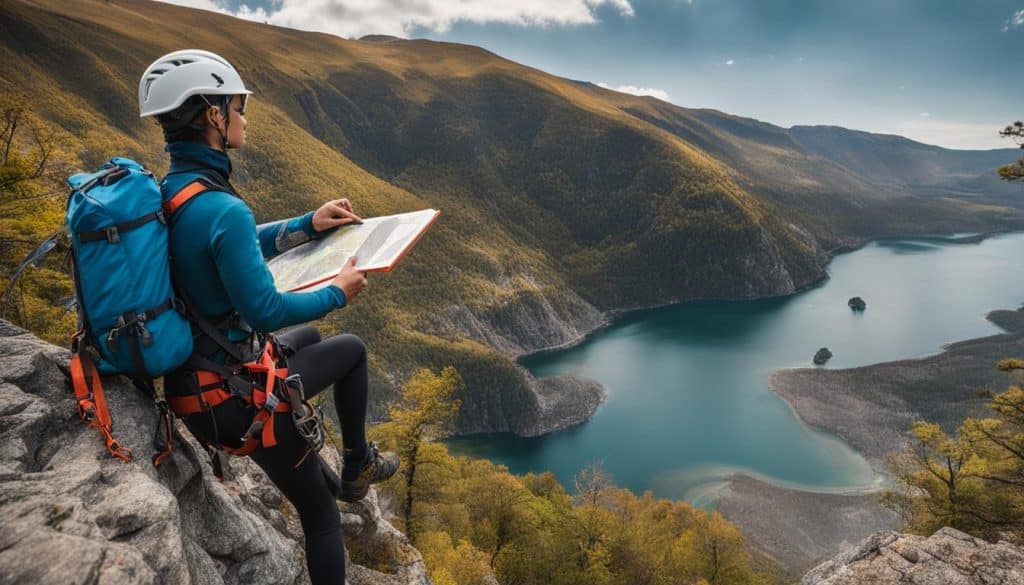Traveling has become more accessible than ever, with budget airlines, flexible work arrangements, and digital nomadism making international trips part of everyday life. But with this rise in mobility comes an increase in safety risks—especially for those who are new to exploring the world. Travel safety tips for new adventurers are now evolving beyond the traditional “watch your wallet” advice, adapting to modern challenges like cyber risks, climate-related disruptions, and changing global regulations.
This guide explores the most relevant, up-to-date safety strategies for first-time travelers in 2025, offering both practical steps and insights into emerging trends.

Why Travel Safety Matters More Than Ever
The global travel industry is rebounding strongly after years of disruption. According to the World Tourism Organization (UNWTO), international tourist arrivals reached 1.3 billion in 2024, nearly returning to pre-pandemic levels【UNWTO, 2024】. But with this growth comes complexity. Rising geopolitical tensions, extreme weather events, and increasingly sophisticated scams mean travelers face new risks.
For new adventurers, safety is about more than physical security—it’s also about digital protection, health preparedness, and cultural awareness.
Key Travel Safety Tips for New Adventurers in 2025
1. Protect Your Digital Identity
Modern travelers carry more than luggage—they carry sensitive data on their devices. Public Wi-Fi networks in airports, hotels, and cafés are prime targets for cybercriminals.
What to do:
- Always use a VPN when connecting to public Wi-Fi.
- Enable two-factor authentication on essential accounts like banking and email.
- Keep digital copies of passports and itineraries stored securely in the cloud.
A recent report from Cybersecurity Ventures predicts cybercrime costs will reach 10.5 trillion dollars annually by 2025, highlighting the importance of digital safety【Cybersecurity Ventures, 2023】.
2. Stay Informed About Climate and Weather Risks
Climate change is directly impacting travel. Extreme heat, wildfires, hurricanes, and flooding can disrupt flights and pose serious risks to unprepared travelers.
Safety tips:
- Download official weather apps (such as NOAA or local equivalents) for real-time alerts.
- Research seasonal climate trends before booking. For example, Southeast Asia’s monsoon season can flood entire regions.
- Pack essentials like a compact rain jacket, water filtration bottle, and basic first aid kit.
According to the World Meteorological Organization (WMO), 2023 marked the hottest year on record, and weather extremes are becoming more frequent【WMO, 2024】.
3. Use Smart Technology for Safer Trips
Smart travel gear is an emerging trend that can significantly improve safety. From GPS-enabled luggage to emergency translation apps, technology is becoming a traveler’s best companion.
Trending tools in 2025:
- Smart luggage trackers (e.g., Apple AirTag, Tile) to monitor checked bags.
- AI-powered translation apps that work offline for emergencies.
- Safety apps like “Sitata” or “GeoSure” that provide real-time alerts on local risks.
These tools not only improve convenience but also reduce the likelihood of being stranded or uninformed.
4. Learn Local Customs and Laws
Many travel mishaps happen not from crime, but from misunderstandings. Some countries impose strict penalties for behaviors that may seem normal at home—like chewing gum in Singapore or taking photos of government buildings in the Middle East.
What to do:
- Read up on local laws and etiquette before traveling.
- Dress modestly where cultural expectations require it.
- Learn a few key phrases in the local language for emergencies.
Respecting cultural norms not only keeps you safe but also makes your trip more rewarding.
5. Secure Your Finances on the Go
Losing access to money can be one of the most stressful travel experiences. With digital banking and contactless payments becoming dominant, travelers must adapt financial safety habits.
Tips for financial safety:
- Carry at least two cards (stored separately) in case one is lost or compromised.
- Notify your bank of travel plans to avoid frozen accounts.
- Use contactless payments or mobile wallets where possible to minimize card skimming risks.
Visa’s 2024 Global Travel report found that 72% of international travelers prefer digital payments, making cyber-security awareness critical【Visa, 2024】.
6. Prioritize Health and Medical Preparedness
Post-pandemic travel has put health front and center. Aside from COVID-19, issues like foodborne illness, dengue fever, and altitude sickness remain real risks.
Steps to stay healthy:
- Carry a basic travel medical kit.
- Check vaccination requirements for your destination.
- Research local healthcare access before arriving.
The CDC continues to update destination-specific health recommendations, which should be checked before departure【CDC, 2025】.
7. Travel Insurance Is Non-Negotiable
While many new travelers still view insurance as optional, it’s becoming an essential part of safe travel. Insurance policies now cover everything from lost luggage to emergency evacuations due to natural disasters.
Look for plans that include:
- Medical coverage abroad.
- Trip cancellation and interruption benefits.
- Coverage for high-risk activities (e.g., skiing, scuba diving).
For new adventurers, this is one of the smartest investments you can make.
8. Stay Aware of Global Safety Trends
Finally, keep in mind that safety isn’t static. Risks evolve with global events, technology, and climate. Follow trusted sources like:
- U.S. Department of State Travel Advisories
- International SOS alerts
- Local embassy updates
Staying informed allows you to adjust plans quickly if needed.
Conclusion: Travel Smart, Travel Safe
The thrill of exploring new places should never come at the cost of safety. For new adventurers in 2025, being prepared means going beyond packing a passport and sunscreen. It’s about protecting your digital identity, understanding climate risks, using smart tools, and respecting cultural norms.
By following these travel safety tips for new adventurers, first-time travelers can enjoy their journeys with greater confidence and fewer risks. Safety isn’t about avoiding adventure—it’s about ensuring you’re equipped to fully enjoy it. With the right preparation, every destination becomes more accessible, and every journey more rewarding. Smart travel habits turn first-time trips into lifelong adventures, creating memories that are both exciting and safe.
References
- World Tourism Organization (UNWTO). (2024, January 24). Tourism set to return to pre-pandemic levels in 2024. United Nations World Tourism Organization. Available at: https://www.unwto.org (Accessed: 22 August 2025).
- Cybersecurity Ventures. (2023, November 15). Cybercrime to cost the world 10.5 trillion dollars annually by 2025. Cybersecurity Ventures. Available at: https://cybersecurityventures.com (Accessed: 22 August 2025).
- World Meteorological Organization (WMO). (2024, January 12). 2023 confirmed as hottest year on record by a clear margin. World Meteorological Organization. Available at: https://wmo.int (Accessed: 22 August 2025).









